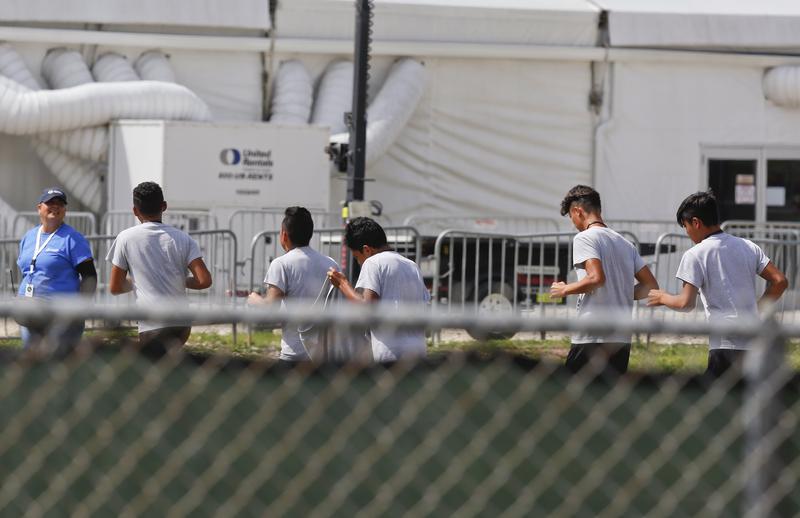
On Thursday, the New York Times reported that almost 13,000 unaccompanied minors were in federally-contracted shelters — a big increase since last year.
Unaccompanied minors are typically from poverty-stricken Central American countries, like Honduras and Guatemala, that are notorious for gang violence. The children come to the U.S. without their parents, though they may be joined by other adults or siblings. Once they arrive, they're processed and sent to shelters until they can join a parent or relative who's already in the U.S., and then pursue a case in immigration court.
But in June, the Trump administration increased the vetting process for those potential sponsors. The administration said these steps were intended to protect children from traffickers. But Anthony Enriquez, director of the unaccompanied minors program at Catholic Charities Community Services in New York, told WNYC these background checks are onerous. They include fingerprinting all adults in the household, and the information can be shared with Immigration and Customs Enforcement (ICE).
"We were very concerned that it would be more difficult for sponsors to be approved," he said. "That sponsors would have more fear of stepping forward and that children, consequently, would be spending longer times in detention."
That fear seems to have been well founded. According to federal data, provided by the Office of Refugee Resettlement, more than 42,000 children were placed with sponsors across the U.S. between October, 2016 and September, 2017. But fewer than 30,000 children were placed with sponsors between last October and July of this year. That's two months short of a full year but it's still a drop of more than 12,000 placements.
In New York state, almost 4,000 children were placed with sponsors during the last fiscal year. But only 2,430 joined sponsors in the ten-month period through July, 2018.
Enriquez said adults who do step forward wind up taking longer to clear. He said Catholic Charities is representing a teenage boy who has a relative in New York who's willing to sponsor him. But this relative hasn't gotten clearance yet from ICE after two months.
"We have no idea why it's taking so long and are now receiving word that this child might be transferred to Tornillo, Texas," he said, referring to a growing tent city for unaccompanied minors run by the federal government. He said he's worried these delays will have negative consequences on developing children in a strange country who can't go to regular schools, aren't with family and don't feel wanted by anyone.
It's not known how many unaccompanied minors are staying in New York shelters, which include congregate care facilities and organizations that place children with foster families. They include Cayuga Centers, which is expanding to meet growing demand. With the exception of one small provider, these shelters did not respond to questions from WNYC. Gov. Andrew Cuomo's office has also complained about a lack of transparency.
"The Trump administration continues to keep agencies serving the children under a federal gag order and have stonewalled state attempts to gather information," said Monica Mahaffey, a spokesperson for the state's Office of Children and Family Services. "We have heard that parental reunification or placement with a sponsor is being hampered by an inefficient federal fingerprinting process resulting in unacceptable delays."
These unaccompanied minors are not the same children who were separated from their families at the southern border last spring during the Trump Administration's "zero tolerance" policy, although they wound up in the same facilities. About 400 of the 2,500 separated children have been reunited with their families since the ACLU filed a lawsuit earlier this year. According to the Legal Aid Society, about 40 of them are still in New York shelters.
